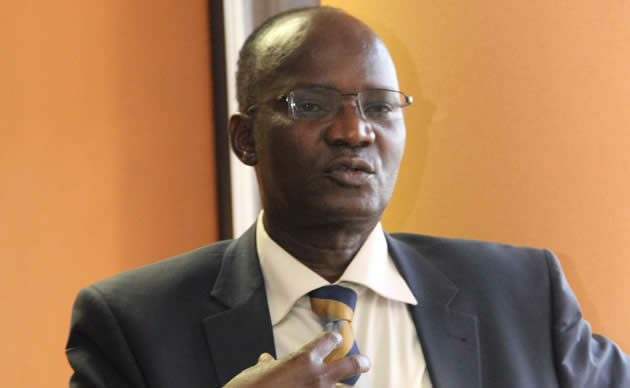Textbook duty: Moyo writes to Chinamasa

Herald Reporter—
Higher and Tertiary Education, Science and Technology Development Minister, Professor Jonathan Moyo yesterday called for the scrapping of the recently introduced 40 percent duty on textbooks which he said would restrict access to learning materials. In a letter to Finance and Economic Development Minister Patrick Chinamasa, Prof Moyo implored the minister to scrap the duty, arguing the local book industry did not have the capacity to pay the duty.
He said officials at the Zimbabwe Revenue Authority had confirmed that the duty came into effect at the beginning of this month. “Prior to this development, the First Schedule of the Customs and Excise Notice, 2012, published in S1 (Statutory Instrument) 111 of 2012 stipulated that textbooks were to be imported without levying any duty,” said Prof Moyo.
He said the new import duty breached provisions of the Unesco Treaty of 1950 Article 1 (a) and (b). The Treaty provides that contracting states should not apply customs duty or other charges on or in connection with the importation of books and educational materials. “Given that my Ministry superintends over the higher and tertiary education sector and houses the Unesco national office, any measures that restrict access to learning materials become matters of grave concern.
“Your urgent redress of the anomaly leading to restriction in accessing textbooks would be appreciated.” Prof Moyo’s call comes amid concerns that the import duty would put the price of books, including school textbooks, beyond the reach of most Zimbabweans and prejudice schools and libraries. The book industry concurred with Professor Moyo saying the duty would make education very expensive.
Presenting his Mid-term Policy Review in Parliament in July, Minister Chinamasa imposed a 40 percent import duty on all printed books, brochures and leaflets. He said the introduction of the duty was necessary to revive the local printing and publishing industry. “Capacity utilisation in the printing and publishing industry has declined, mainly due to an influx of imported printed products, lack of access to affordable funding and obsolete equipment, among other challenges.” said Minister Chinamasa
Players in the book industry said they were not consulted before the introduction of the duty which they said will impact negatively on the education sector. The national chairperson of the Zimbabwe Book Sellers Association Paul Masuku said they had written to the Primary and Secondary Education Ministry’s permanent secretary Sylvia Utete-Masango requesting for a meeting over the issue. He said the duty meant that books especially for Advanced Level would be beyond the reach of many.
Clemence Kunzekweguta of Zero said book sellers would pass on the cost to consumers and this means the books would become expensive. He said there was an urgent need to engage the government on the issue. Nick Chingwenya of Best Books said duty on books will promote piracy. “Schools fees will increase because schools depend on it to buy textbooks. Private schools will be the worst affected as they don’t use local printed textbooks,” said Chingwenya.
Bulawayo’s Matopo Books Centre branch manager Michael Mpala said although it was necessary for the government to impose duty on books, the percentage was very high. Phumulani Mhlophe of Stationery and Gift Shop said the government was shooting itself in the foot. “We don’t have local suppliers of science textbooks and other subjects so the duty will adversely affect the availability of teaching materials,” he said
Former Education Minister David Coltart said the government must reverse its decision as it is against international education standards. Coltart said the imposition of duty on academic material was in violation of international agreements on importation of educational, scientific and cultural materials which the country is signatory to.








Comments